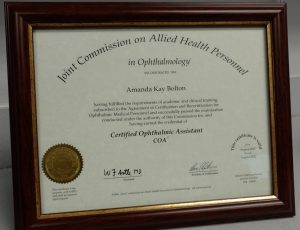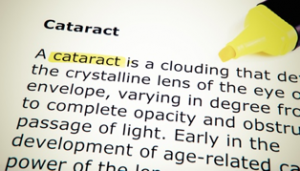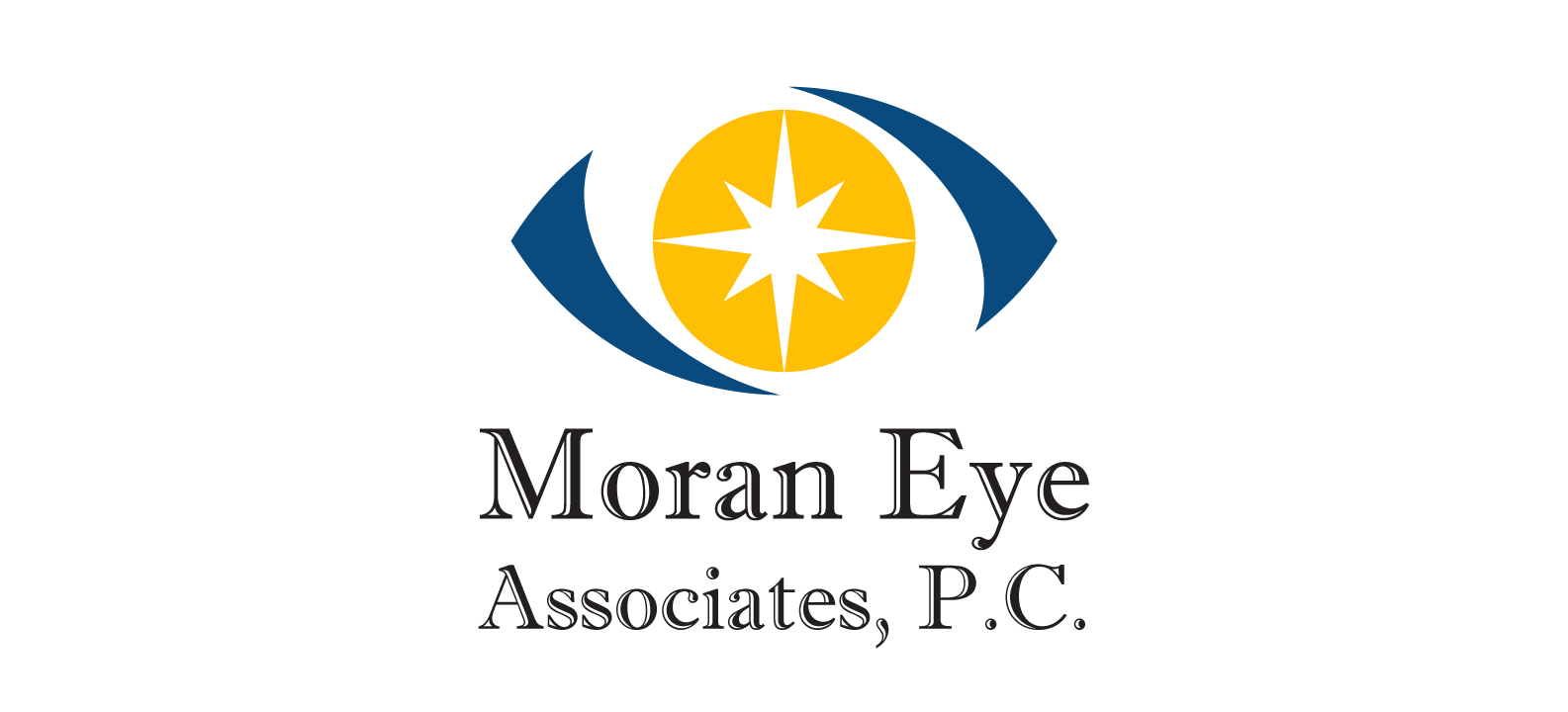by Dr. M | Oct 30, 2017 | Appointment, Dilation, Exam, Medical Eye Care, Patient Care, Retina, Uncategorized
DROPS, DROPS, when does it stop?

Ocular medication for dilating and glaucoma, assorted types
Patients often ask when they come in to see Dr. Moran for a complete exam, diabetic exam or cataract recheck, “Why all these drops?” Here is the simple explanation.

The eye doctor is easier than the dentist!
Getting a comprehensive eye exam without dilation, is like going to the dentist and not opening your mouth. Sure, he can see your lips and the shape of your jaw but he’s unable to see the health of your teeth.
Dr. Moran can examine the lids, lashes, and cornea (outermost layer of your eye), but to see beyond the surface, you need the drops, drops and more drops.
Depending on your age, diagnosis and health history you may receive more drops than another. Let’s discuss someone in their 60’s with diabetes or cataracts.
First, you will receive the “yellow drop”- No your eyes will not stay that color. This drop will allow us to check the intraocular pressure of your eye (glaucoma screen). It also acts as a mild numbing agent.
Next, you will receive a Phenylephrine drop. This is the drop which will dilate your pupil and allow Dr. Moran to see into the depths of the eye and examine the retina.
Lastly, comes the Mydriatic drop which paralyzes the iris muscle to keep the eye dilated for the duration of the examination.
That’s the answer to why all the drops. Now when will it STOP?
Usually, dilation lasts from 4-6 hours. It will affect your ability to work close-up and you will be sensitive to light. Blue eyes tend to stay dilated longer. It is not unusual for some patients to remain dilated for more than 6 hours, but dilation is not harmful to the eye.

You can drive if you are comfortable doing so. We recommend dark sunglasses and will provide you with them if you forget to bring yours.
Although being dilated can be an inconvenience, the benefit significantly outweighs the hassle.
Schedule your DILATED eye examination by calling or texting our office at 610-628-2022, we look forward to seeing you.
Contributed by Mandy Bolton, COA
by Dr. M | Sep 13, 2017 | Education, Exam, Experience, Office, Patient Care
We congratulate Mandy Bolton on achieving her Certified Ophthalmic Assistant (COA) designation!

Mandy

The COA professional certification is provided by (JCAPHO), the Joint Commission for Allied Health Personnel in Ophthalmology and is an industry-recognized achievement.
Mandy’s COA accomplishment is not her first professional achievement. She was also the first Certified Patient Services Specialist in the state of Pennsylvania, completing that program in 2013. Her educational achievements highlight her dedication to providing the best patient care.
What is a COA?
The Certified Ophthalmic Assistant (COA) is a core designation for eye care professionals on the path to success. This designation confirms an assistant’s knowledge in 19 specific content areas. The COA certification examination is three hours in length and is comprised of 200 scored multiple-choice questions.

Many hours of textbook study goes into preparation for this demanding test. Mandy was also fortunate to have hands-on experience working with patients and learning from Dr. Moran to help supplement her course of study. Dr. Moran is proud of her dedication to our practice and to our patients.
When you see Mandy, please be sure to congratulate her on her achievement!
by Dr. M | Sep 5, 2017 | Appointment, Education, Exam, LASIK, Medical Eye Care, Office, Patient Care
At Moran Eye Associates, patient education is a priority. Our goal is to make sure that you see clearly AND that you understand clearly as well!
Have you ever left a doctor’s office and not been completely sure about your diagnosis or treatment plan? We never want that to happen to you at our office! Dr. Moran is an expert at patient education. He makes complex medical information easy to understand by using analogies. We’ve compiled a “Best of” collection here. Our patients appreciate how he explains the sometimes confusing issues of eye care!

A peep hole in a wooden fence.
If you want to see what’s on the other side of a fence, the bigger the fence hole, the more you can see. When patients ask why they have to be dilated, this answer helps make it easier to understand. If Dr. Moran is looking through your normal pupil he/she will only see a small portion of the back of the eye. If he is looking through a dilated pupil, the hole is much bigger, and he can see much more to better evaluate the health of your eye.
Your eye is like a camera. The retina is like the film of the camera, and the eye’s lens is like the lens of the camera. In order to have good photos (clear vision), both the lens and the retina must be working well. You won’t have a good photo is there is a problem with the film…just like you won’t have a good photo if the lens is damaged.

Tear film is like rain on a windshield
Tear film is like rain on a windshield. If it is only drizzling and there is very little rain (poor tear film), your windshield will be streaky, the wipers won’t work effectively, and your vision will be blurry. If it is raining steadily (good tear film), the wipers will clear away the water effectively and your vision will be clearer. Your eye works the same way…good tear film is needed for clear vision.
You don’t need a bazooka to swat a mosquito. When Dr. Moran prescribes medicine, he chooses the right medicine for your needs. There are many options available, so it’s important to have the right dosage of the right medicine, more is not always better!

Cruise Ships turn very slowly!
Changing treatment plans is like turning a cruise ship, turn gradually and you will get you where you need to go smoothly. If you are moving from one treatment plan to another, we don’t want to make abrupt changes. Making gradual changes can help to achieve the best results.

Make sure the fire is COMPLETELY OUT!
When you put out a fire, make sure it is out completely. If you leave embers burning, it may reignite! It’s a good way to understand why you need to continue taking all of your medicine. If you stop taking it before the pain is gone, or before the infection is completely gone, your problem could start up again. Think of it like a fire that reduced to embers, it can burst into flames again!
Dr. Moran is always coming up with new and different analogies to make vision care less confusing. We’ll continue to update our patient education “best of lists” on Facebook! “Like” Moran Eye Associates us to stay informed!
Moran Eye Associates on FB
by Dr. M | Aug 23, 2017 | Cataracts, Exam, Experience, Eye Protection, Eye Safety, Glaucoma, LASIK, Macula, Medical Eye Care, Patient Care, Sun Damage, Surgery, Uncategorized

Ask the expert!
 …or as we like to call it, ask our expert, “ASK DR. MORAN”!
…or as we like to call it, ask our expert, “ASK DR. MORAN”!
Dr. Mark Moran will be featured on 100.7 WLEV’s Morning Show with Selena & Crockett each Thursday on 100.7 WLEV. He is the medical expert on the panel of Lehigh Valley professionals.
Dr. Moran was selected to be a part of “Ask the Experts,” a drive-time feature aired between 8-8:15 am weekdays. Dr. Moran will provide medical expertise on the Thursday edition of this program. He will answer questions about keeping your eyes healthy and getting the most from your vision. The Morning Show’s Kevin Crockett will ask Dr. Moran questions sent in by morning show listeners.
Our expert will answer questions about: 
- LASIK Surgery
- Dry Eyes
- Screen Time Solutions
- Your Risk factors for Eye Diseases
- Your Eyes as You Get Older – Cataracts
Patient education has always been a priority at Moran Eye Associates because Dr. Moran knows that an informed patient makes the best healthcare decisions. We invite you to listen in every Thursday for great advice on eye care.
Have a question?
If you have a question for Dr. Moran, you can send a message to the Morning Show, or email us directly with your question. Of course, we will reply to the emails sent to [email protected]. We will also pass along your inquiry to WLEV, where Crockett might read it on the air!
Mark your calendars, and be sure to listen in to Ask the Experts with Dr. Mark Moran Thursdays at 8 am!
by Dr. M | Jun 20, 2017 | Cataracts, Exam, Medical Eye Care, Patient Care, Surgery

What is a cataract?
Most people over the age of 50 will develop cataracts at some time in their lives.
The good news is that cataract surgery is an outpatient procedure that takes just minutes to perform with a quick recovery time.
How would I know if I have a cataract? A cataract develops gradually, so you may not notice a big change in your vision from one day to the next. A cataract can easily be detected during a routine eye exam. If you are starting to notice any of the following issues, you should make an appointment with Dr. Moran.
- Glare or Halos
- Poor Night Vision
- Cloudy or Blurry Vision –
- Colors Look Faded
- Double Vision in One Eye
Many patients say that after cataract surgery they have the best vision of their lives.
During your cataract surgery, Dr. Moran will remove the cloudy lens of the eye, and replace it with a clear intraocular lens (IOL). When we take your surgery measurements you will have some choices when it comes to the type of lens implant you will have.

An Intraocular Lens is Inserted during cataract surgery to improve your vision.
You can choose:
- A Mono-focal IOL will provide you with one point of focus (like regular eyeglasses)
- A Toric IOL provides one point of focus and corrects your astigmatism.
- A Multi-focal IOL (ReSTOR) allows for a full range of vision – near, intermediate and distance – greatly reducing your need for glasses.
- A Multi-focal IOL (ReSTOR/TORIC) which allows for a full range of vision – near intermediate and distance & corrects your astigmatism.
We will talk to you about your daily life and your visual needs before we schedule your surgery. We will review your lens choice options so that you get the right lens for you. Dr. Moran will use his expertise to help you get the best outcome.
If you have questions about cataracts, contact our office for an appointment. When you are ready for cataract surgery, we will make sure that you have all the information that you need to make the best decisions for you, 610-628-2022.
To learn more go to Cataracts
by Dr. M | Jun 10, 2017 | Donate, Exam, LASIK, Medical Eye Care, Procedure, Surgery
Make a $250 Donation – Get a $1,000 LASIK Credit with our Great Vision – Great Cause program!

Logan’s Heroes Animal Rescue
Dr. Moran is an expert LASIK surgeon who has been improving vision for 20 years. Through the Moran Eye Associates’ Great Vision-Great Cause program, he has found a way to use his surgical skill to benefit both his patients and the community.

Logan’s Heroes supports Veterans
The healing ability of the human-animal relationship is a key focus of this rescue. Logan’s Heroes also focuses on helping local veterans by providing dogs to assist those vets suffering from PTSD. This unique, paired focus provides healing benefits for both the animals and their human companions.
How to start the LASIK process (and benefit Logan’s Heroes Animal Rescue too!):
- Call for a free LASIK consult 610-628-2022.
- If you are a candidate for this procedure, you can save on LASIK with our Great Vision – Great Cause
- Make your tax-deductible $250 donation to Logan’s Heroes.
- You will receive a $1,000 credit* toward LASIK with Dr. Moran.
- Schedule your surgery and apply the savings!
- Receive a thank you and a receipt for your tax-deductible donation.

Adopt Brittany and her friends!
Want to learn more about Logan’s Heroes? Visit their website www.lharinc.com
*Limit one credit per patient. Valid on LASIK procedures scheduled between June 1 and September 30, 2017.
Schedule your FREE LASIK appointment today! Click to Request an Appointment or call us at 610-628-2022.












 …or as we like to call it, ask our expert, “ASK DR. MORAN”!
…or as we like to call it, ask our expert, “ASK DR. MORAN”!




